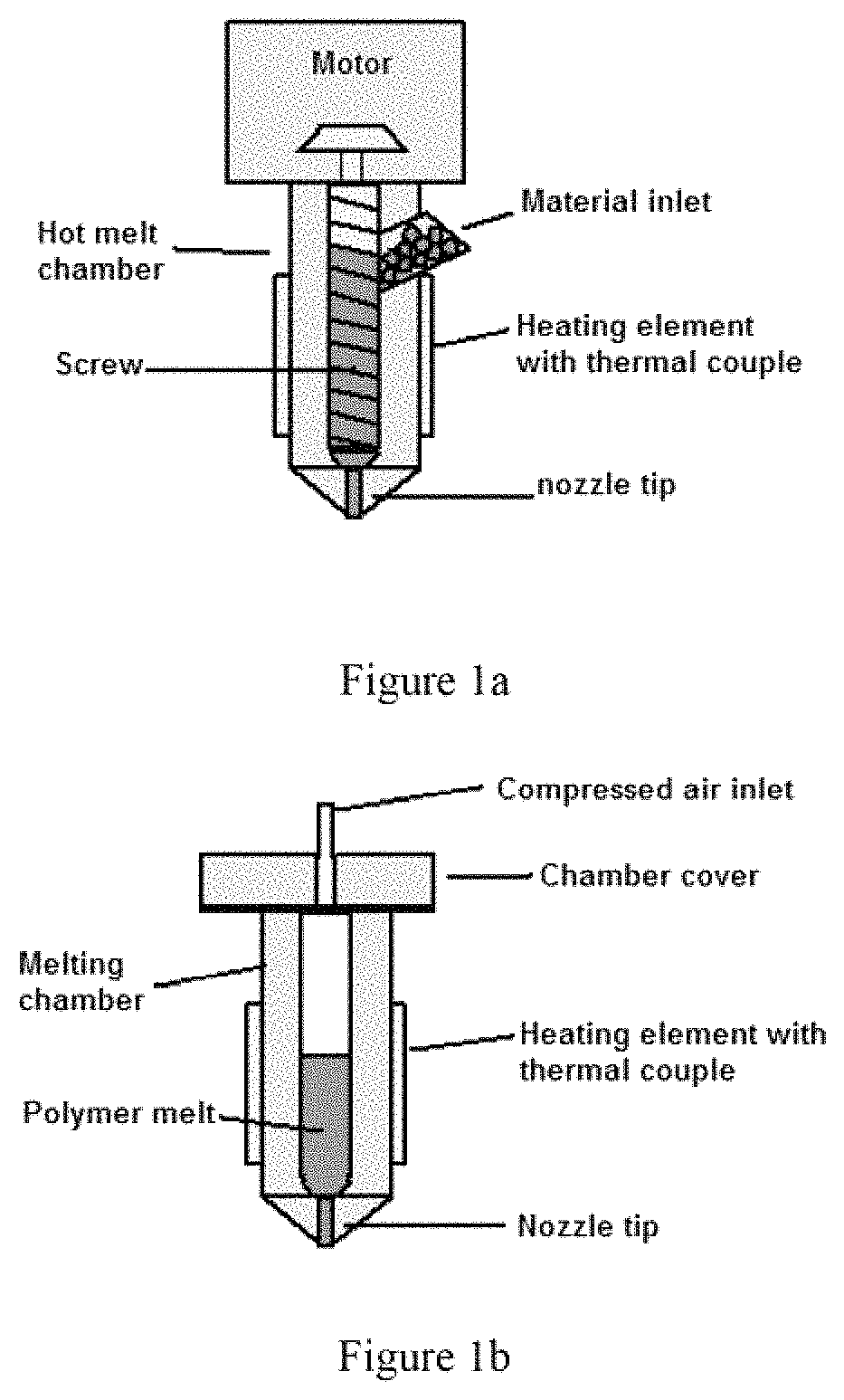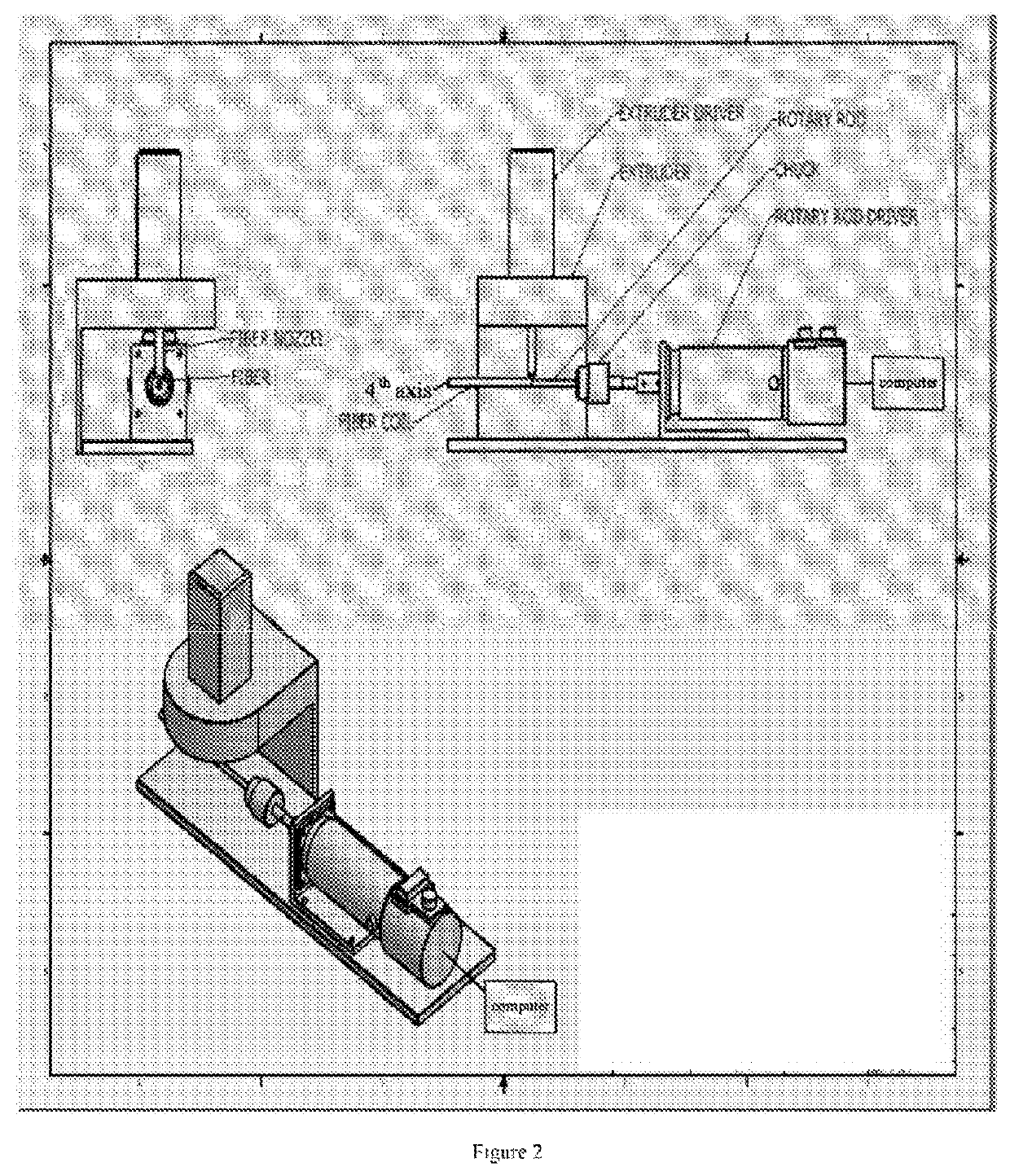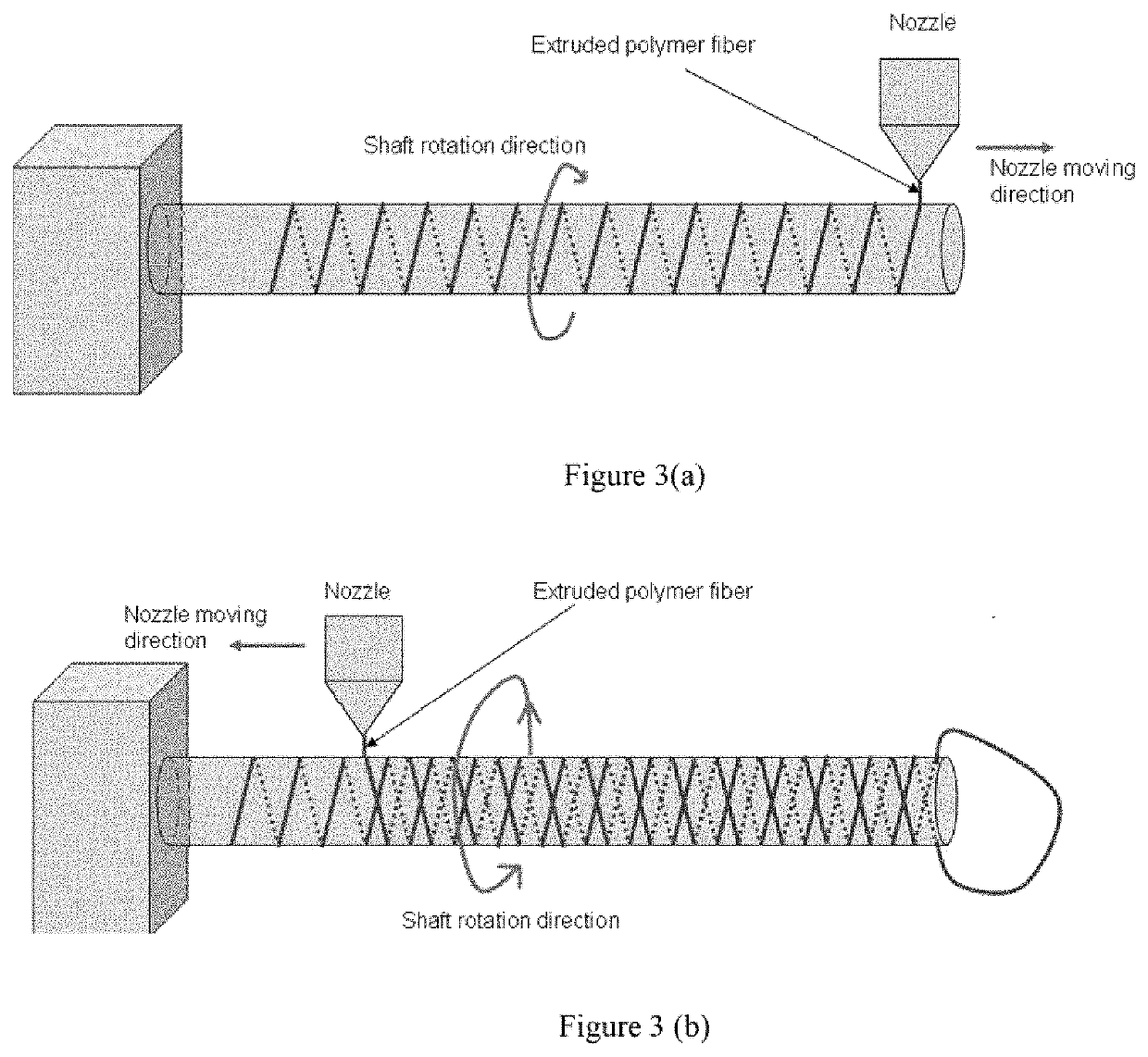Methods and apparatus for fabricating porous three-dimensional tubular scaffolds
a three-dimensional tubular and scaffold technology, applied in envelope/bag making machinery, paper/cardboard containers, packaging foodstuffs, etc., can solve the problems of inefficient tubular porous structure fabrication system, xyz, time-consuming two-step process, etc., to achieve easy control or manipulation of pores, pore size, structure, and mechanical properties
- Summary
- Abstract
- Description
- Claims
- Application Information
AI Technical Summary
Benefits of technology
Problems solved by technology
Method used
Image
Examples
Embodiment Construction
[0027]In the 4 axis RP system of the present invention, the 4th axis is a computer controlled rotation shaft added to an xyz position system. The 4 axis RP system also has a material delivery system that directly deposits polymer material in a hot melt filament form or a viscous solution filament form. The deposited filament adheres to the surface of the rotation shaft or bonds to previously extruded filaments that already attached to the rotation shaft, therefore eliminating the need to use glue or controlled heating, as previously described in, e.g. US patent application (US 20030211130A1 by Sanders et al). In addition, the fiber diameter can be changed by either varying the rotation speed of the 4th axis where the polymer filament is attached, or by varying the XY axis traveling speed, similar to a hot melt drawing process. This system is particularly suitable for making 3D tubular scaffolds with complicated micro-porous structures.
[0028]3D tubular scaffolds made by the 4 axis RP...
PUM
| Property | Measurement | Unit |
|---|---|---|
| diameter | aaaaa | aaaaa |
| pore size | aaaaa | aaaaa |
| obtuse angle | aaaaa | aaaaa |
Abstract
Description
Claims
Application Information
 Login to View More
Login to View More - R&D
- Intellectual Property
- Life Sciences
- Materials
- Tech Scout
- Unparalleled Data Quality
- Higher Quality Content
- 60% Fewer Hallucinations
Browse by: Latest US Patents, China's latest patents, Technical Efficacy Thesaurus, Application Domain, Technology Topic, Popular Technical Reports.
© 2025 PatSnap. All rights reserved.Legal|Privacy policy|Modern Slavery Act Transparency Statement|Sitemap|About US| Contact US: help@patsnap.com



